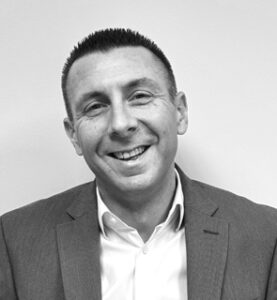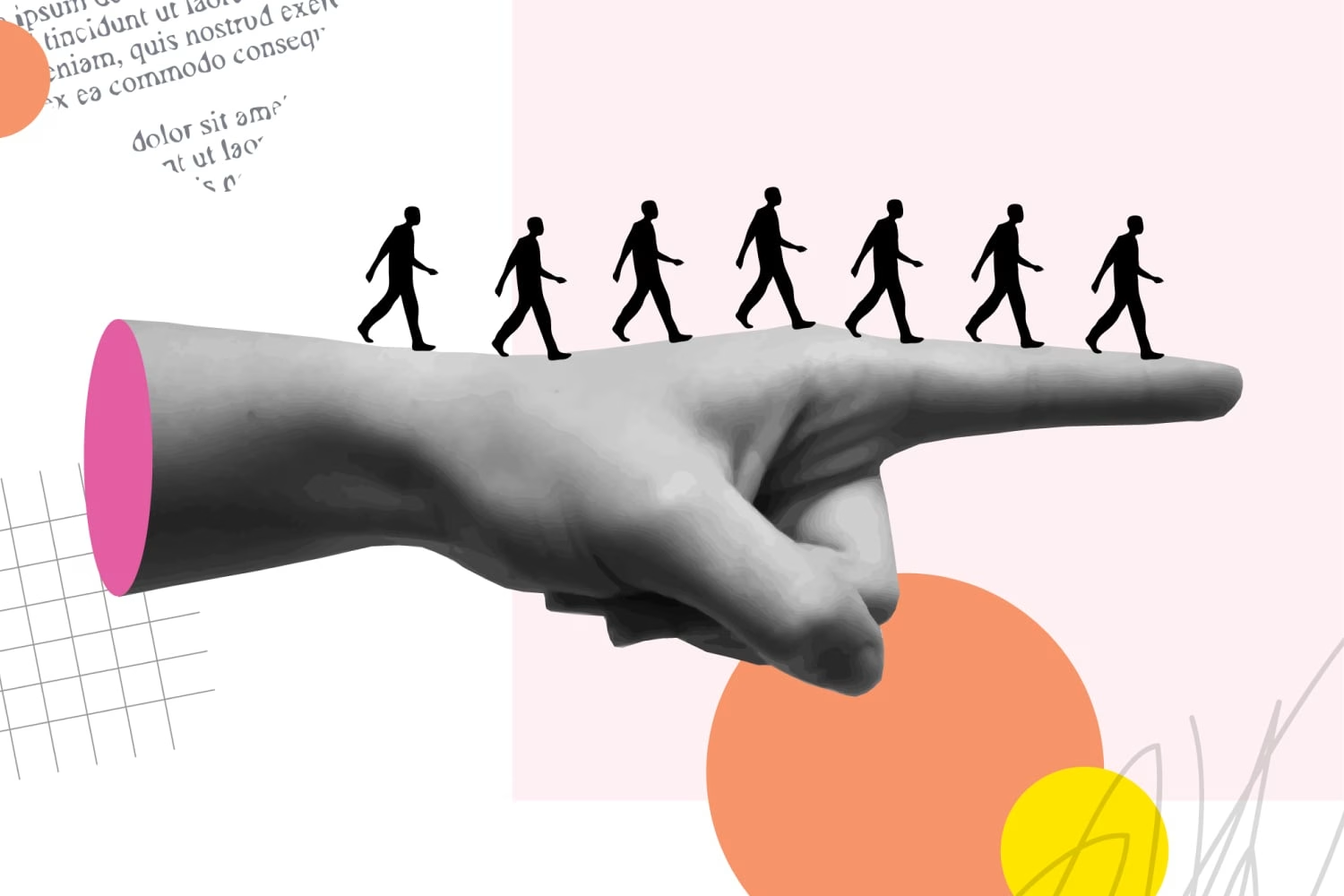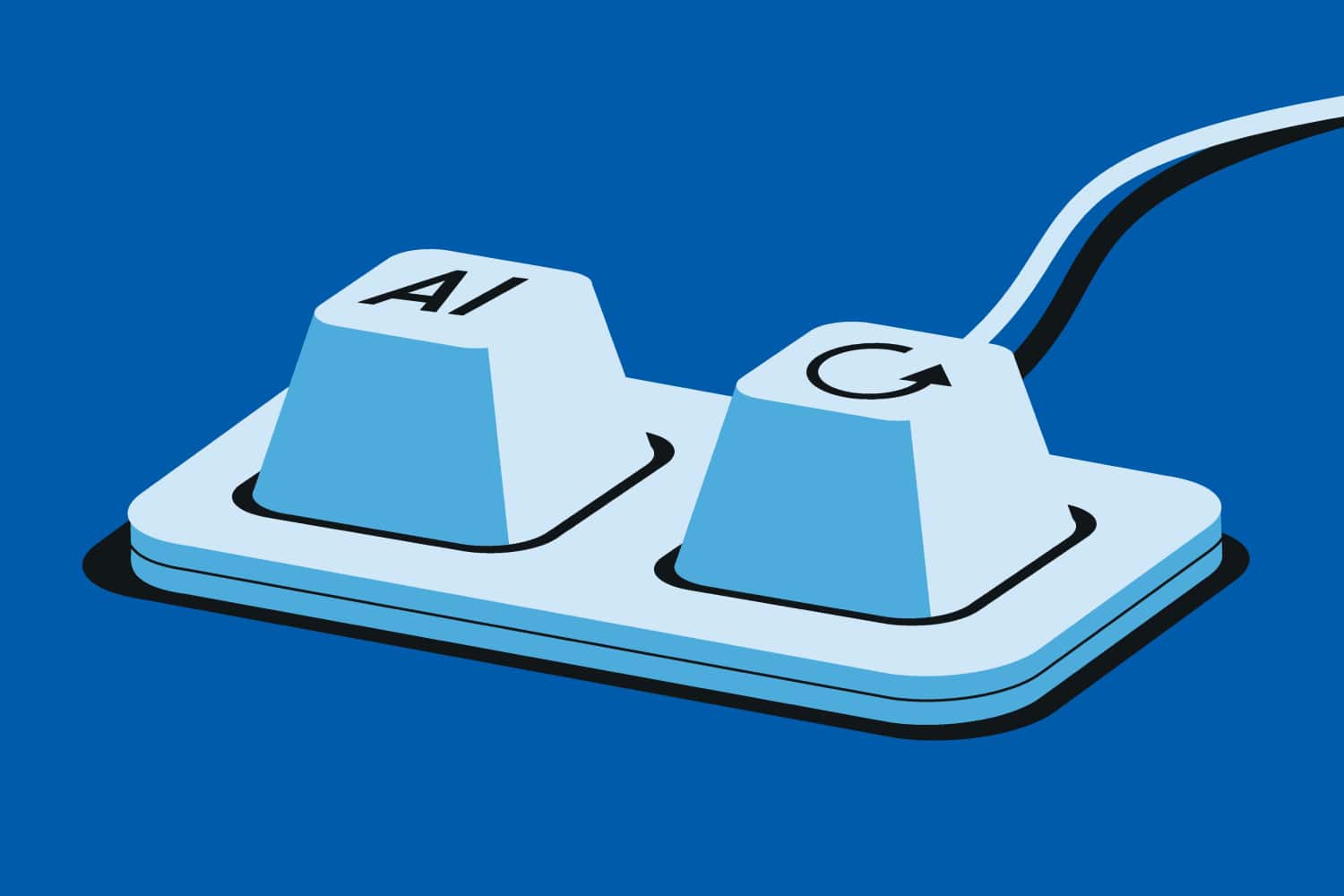We Are All in the People Business

Share this story
Organizations across the globe are standing in the middle of a movement. More than a movement. Businesses are witnessing waves of change that have been building from the inside and the outside of organizations’ walls. On the outside, we have pandemic protocols, digital transformation, a rise in cultural awareness and a call for social justice. Those outside factors have directly affected employees inside of organizations who search for work-life balance, flexibility, and progress both personally and professionally. These two dynamics at play drive the urgency for businesses to create and embrace a modern workplace.
When I think about the term “modern workplace,” my thoughts go deeper than just the pros and cons of in-person vs. hybrid vs. fully remote work. The evolution of the modern workplace was inevitable. The advancements in technology combined with the growing number of digitally savvy workers meeting the next generation of digital natives accelerated digital transformation and ushered in this new workforce. When The Mx Group decided to evolve our workplace, we did so because we recognized the acceleration was not going to stop. We needed to develop a modern workplace for a modern workforce that is prepared to meet the challenges of a modern marketplace for our clients.
The necessity to cultivate a modern workforce is a call to rise to the occasion for our clients who need us now, more than ever. Clients need to know their agency can adapt and remain agile enough to manifest a seamless, integrated experience for all their brand, demand, digital, creative and strategic needs in one place. To accomplish this task, we as a business need to assemble the right talent. If we fail to adapt, the talent we attract will decrease, the diversity of the perspectives we bring to the table will suffer and the engagement of our team will lapse. This void will make itself apparent in our work. Here is what we learned so far about what it takes to lead a modern workforce.
THE MODERN WORKPLACE IS INCOMPLETE
The key to leading a modern workforce is recognizing the absence of a clear roadmap. Don’t be discouraged by this. Part of what leading a modern workforce means is taking steps into the unknown, but this is something you will get better at the more you push forward. The answer to “how do you lead a modern workforce?” is incomplete, never finished and always evolving. We learn more each day. And we can only commit to being better today than we were yesterday, but not as good as we will be tomorrow.
FLIP THE LEARNING MODEL ON ITS HEAD
The members of the modern workforce need a workplace that is just as dynamic as they are. So, we have to flip the learning model on its head — it is cliché, but businesses need to go from reactive to proactive, from saving to retaining, from post-mortem reviews that focus on what went wrong to ongoing project reviews that focus on what is working. With all this learning comes communication — ensuring this is shared with teams in remote environments, with clients engaged on similar initiatives, in your onboarding processes and more.
Speaking of onboarding, the introductory training process has never been more important than it is now. Having a thorough and engaging onboarding will be key in navigating attrition and growth. We are all in a war for talent, so we need to look at the digital tools available in our space and recognize that we are likely best positioned to develop engaging onboarding content. Finding great talent is the first step; getting them trained and engaged is arguably the large challenge.
CREATE VALUABLE CONNECTIONS
To achieve engagement, you need to be intentional when creating connections. Stopping by someone’s desk, sharing a meal or collaborating in a room together are here to stay, but the modern workforce has even more connective options than before. To fill the gaps, develop events to create connections across teams with people that normally wouldn’t work together. Set up check-in meetings across your workforce focused on how people are doing personally — understanding that if they are doing well at home, they will do even better at work. Create norms and opportunities that motivate employees to recognize other employees’ achievements company-wide. And ensure the recognition highlights not only what they did, but also how they went about doing it.
LEADERS NEED TO LEAD
If this sounds like a lot of work, it is. Leaders need to lead. Lazy leaders blame the lack of connections and engagement on “remote work,” “digital fatigue” and more. It is time to eliminate the distractions and be active participants in growing a positive company culture. It is time for the leaders of the organization to model the behaviors that represent the organization’s values and shape the company culture. When change occurs in workplace operations due to distributed teams, be solution-oriented and figure out how to make it work — understanding that the ways it used to work might not work this time around.
WE ARE ALL IN THE PEOPLE BUSINESS
Our product is our people, and our ability to harness our people’s creativity, passion and energy is key to producing great work. To attract these passionate, creative and energetic people, we need to listen and learn to become the leaders they deserve. We need to listen in order to nurture an environment where these talented professionals know they can share their ideas and feel confident those ideas will grow. The more the ideas grow, the more perspectives we can bring to the table from people of different backgrounds, life experiences, ethnicities and more. Teams will also be more engaged and satisfied, staying longer, obtaining a depth of knowledge about our businesses. All of this results in better work, the ability to do more work on a larger scale and confidence that comes from adapting to new ways of working.
The agency business has long been a people business. But now, after witnessing this momentous movement of change in the market, I realize we are all in the people business. And that to make an impact on the marketplace, we need to make an impact on our people first. Embrace the change and become the person you would feel inspired to work for.



